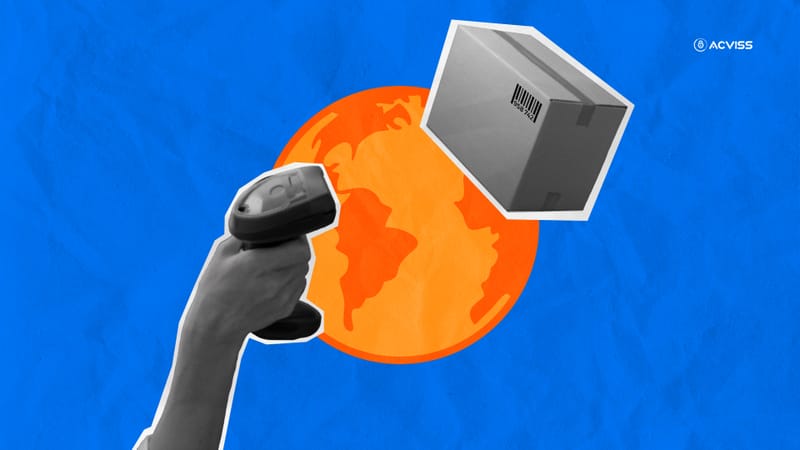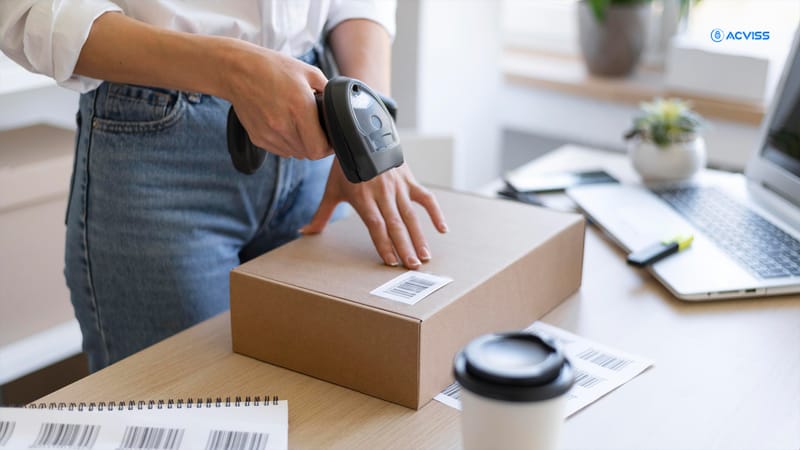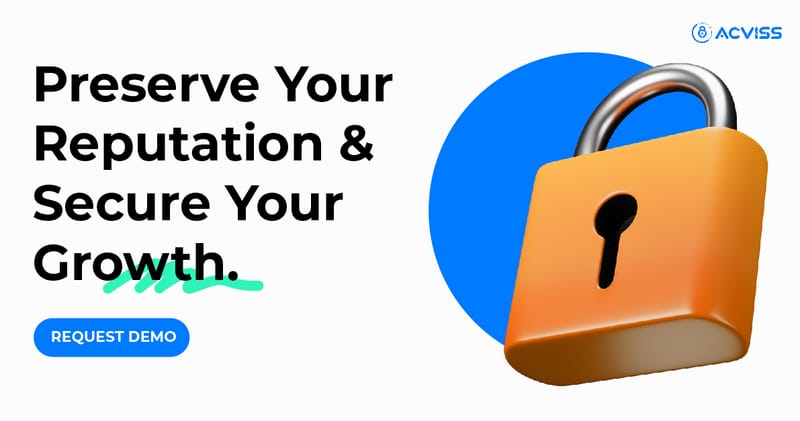How Product Serialization Can Enhance Transparency in Supply Chains

Are you curious about the secret sauce behind ensuring the authenticity of products? Wondering how companies track and trace items seamlessly through the complex web of supply chains? Look no further, as we embark on an exciting journey into the realm of product serialization! In this article, we'll delve into the nuts and bolts of this cutting-edge technology, exploring how it empowers businesses to maintain transparency, combat counterfeiting, and bolster consumer confidence.
Contents
Deciphering Product Serialization: What Exactly Is It?
Product serialization is like the Sherlock Holmes of the supply chain world—it's all about tracing the unique identity of each product as it travels from manufacturer to consumer. At its core, product serialization involves assigning a distinct serial number or code to individual items during the manufacturing process. This code serves as a digital fingerprint, enabling seamless tracking and authentication throughout the product's lifecycle.
Why Does Serialization Matter?
You might be wondering, "Why all the fuss about product serialization?" Well, let me tell you—it's a game-changer for businesses and consumers alike! Here's why:
Combatting Counterfeiting
With the rise of counterfeit products flooding the market, product serialization acts as a powerful weapon in the fight against fraud. By assigning unique identifiers to genuine products, companies can easily distinguish them from counterfeit counterparts.
Ensuring Supply Chain Transparency
In an era where consumers crave transparency, product serialization delivers the goods! Using solutions like Origin provides visibility into each step of the supply chain, from manufacturing to distribution, companies can build trust and loyalty with their customers.
Enhancing Product Safety
From pharmaceuticals to electronics, product serialization plays a crucial role in ensuring the safety and integrity of goods. By tracking items with precision, companies can swiftly identify and address issues such as recalls or tampering.
Facilitating Regulatory Compliance
With increasingly stringent regulations governing product traceability and authenticity, compliance is non-negotiable. Product serialisation helps companies stay on the right side of the law by enabling seamless adherence to regulatory requirements.

How Does Product Serialization Work?
Now that we've covered the why, let's dive into the how! Product serialization operates on a simple yet powerful principle: each product receives its own unique identifier, typically in the form of a barcode, QR code or RFID tag. Here's a sneak peek into the process:
1. Assigning Unique Identifiers
During the manufacturing process, each product is tagged with a unique serial number or code. This identifier is akin to a digital passport, carrying essential information about the product's origin, batch number, and more.
2. Capturing Data
As products make their way through the supply chain, data is captured at various touchpoints using specialized scanning devices. These devices read the product's unique identifier, recording crucial information such as location, time, and condition.
3. Tracking and Tracing
Armed with this wealth of data, companies can track and trace products with pinpoint accuracy. Whether it's monitoring inventory levels, investigating discrepancies, or verifying authenticity, product serialization puts the power in their hands.
4. Authentication
When a product reaches the end consumer, they can verify its authenticity by scanning the unique identifier using a smartphone or other device. Certify by Acviss uses non-clonable labels that can be scanned using a mobile device. This instant verification process offers peace of mind and reassurance in a sea of uncertainty.
Implementing Product Serialisation
1. Unique Identifier Generation
The unique identifier is a crucial part of product serialisation. Typically, this takes the form of a serialised Global Trade Item Number (GTIN), which includes:
The product's GTIN (Global Trade Item Number)
A unique serial number
Additional data like expiration date and batch/lot number (crucial for industries like pharmaceuticals)
2. Choosing the Right Data Carrier
The unique identifier needs to be encoded into a format that's easily readable and durable. Common technological options include:
QR codes or Advanced authentication labels
RFID tags
NFC chips
The choice often depends on the industry, product type, and specific tracking needs.
3. Integration into Manufacturing and Packaging
Serialization begins at the point of manufacture. The unique identifier is applied to each product, either by printing directly on the packaging or through labels. This step requires careful integration with existing manufacturing processes to ensure efficiency and accuracy.
4. Establishing a Robust Data Management System
A centralized database forms the backbone of any serialisation system. This database must be capable of:
Generating and storing serial numbers
Providing real-time visibility to authorized parties
5. Supply Chain-Wide Integration
For serialisation to be effective, every stakeholder in the supply chain needs to be on board. This often means:
Upgrading existing inventory management systems
Implementing new scanning and recording protocols
Training staff on new procedures
6. Implementing Track and Trace
As products move through the supply chain, their serialised identifiers are scanned and recorded at each touchpoint. This creates a digital trail, offering real-time visibility into:
Product location
Handling conditions
Chain of custody
7. Enabling Verification
One of the most powerful aspects of serialisation is the ability of end-users - retailers or consumers - to verify product authenticity. By simply scanning the product's identifier, they can check its validity against the central database.
8. Leveraging Data for Insights
The wealth of data generated through serialisation opens up new avenues for business intelligence. Companies can analyze this data to:
Optimize supply chain efficiency
Identify and address bottlenecks
Detect and prevent counterfeit activities
Geofencing for Enhanced Control and Visibility
Geofencing is a location-based technology that creates virtual geographic boundaries, triggering actions when a mobile device or RFID tag enters or exits a defined area. It utilizes GPS, RFID, Wi-Fi, or cellular data to establish these virtual perimeters.
When integrated with product serialization, geofencing adds a powerful layer of control and visibility to supply chain operations. This technology allows companies to monitor the movement of serialized products within specific areas, offering benefits such as real-time location tracking, route compliance verification, theft prevention through unauthorized movement alerts, and automated customs processing at borders or ports.
Must Read: Preparing for EUDR Compliance Audit: Everything You Need to Know
Embracing the Power of Product Serialization
In a world rife with counterfeit goods and supply chain complexities, product serialisation emerges as a beacon of hope. Companies can bolster transparency, combat counterfeiting, and safeguard consumer trust by leveraging the power of unique identifiers.
From enhancing product safety to facilitating regulatory compliance, the benefits are undeniable. So, whether you're a multinational corporation or a mom-and-pop shop, it's time to embrace the magic of product serialization and unlock a brighter future for your business and your customers!
Want to learn more about product serialisation and how to implement them for your brand? Get in touch with us or book a demo.
Acviss has protected 2 billion+ products globally and served 80+ brands scaling different industries and businesses. Join us to secure your standing in the market and amplify your brand and trust among your customers.
FAQs
Is product serialization only for large corporations, or can small businesses benefit too?
Good news—it's for everyone! While larger companies may have more resources to invest in serialization technology, there are affordable solutions tailored to the needs of small and medium-sized businesses.
How does product serialization differ from traditional tracking methods like barcodes?
Unlike traditional barcodes, which provide limited information and can be easily replicated, product serialization offers a higher level of security and granularity. Each serialized product has its own unique identifier, making it virtually impossible to counterfeit.
Can product serialization help prevent product recalls?
Absolutely! By enabling rapid traceability and identification of affected products, serialization technology can mitigate the impact of recalls and minimize risks to consumer safety.
Is product serialization compatible with existing supply chain systems?
Yes, indeed! Many serialization solutions are designed to integrate seamlessly with existing supply chain management systems, minimizing disruption and maximizing efficiency.
